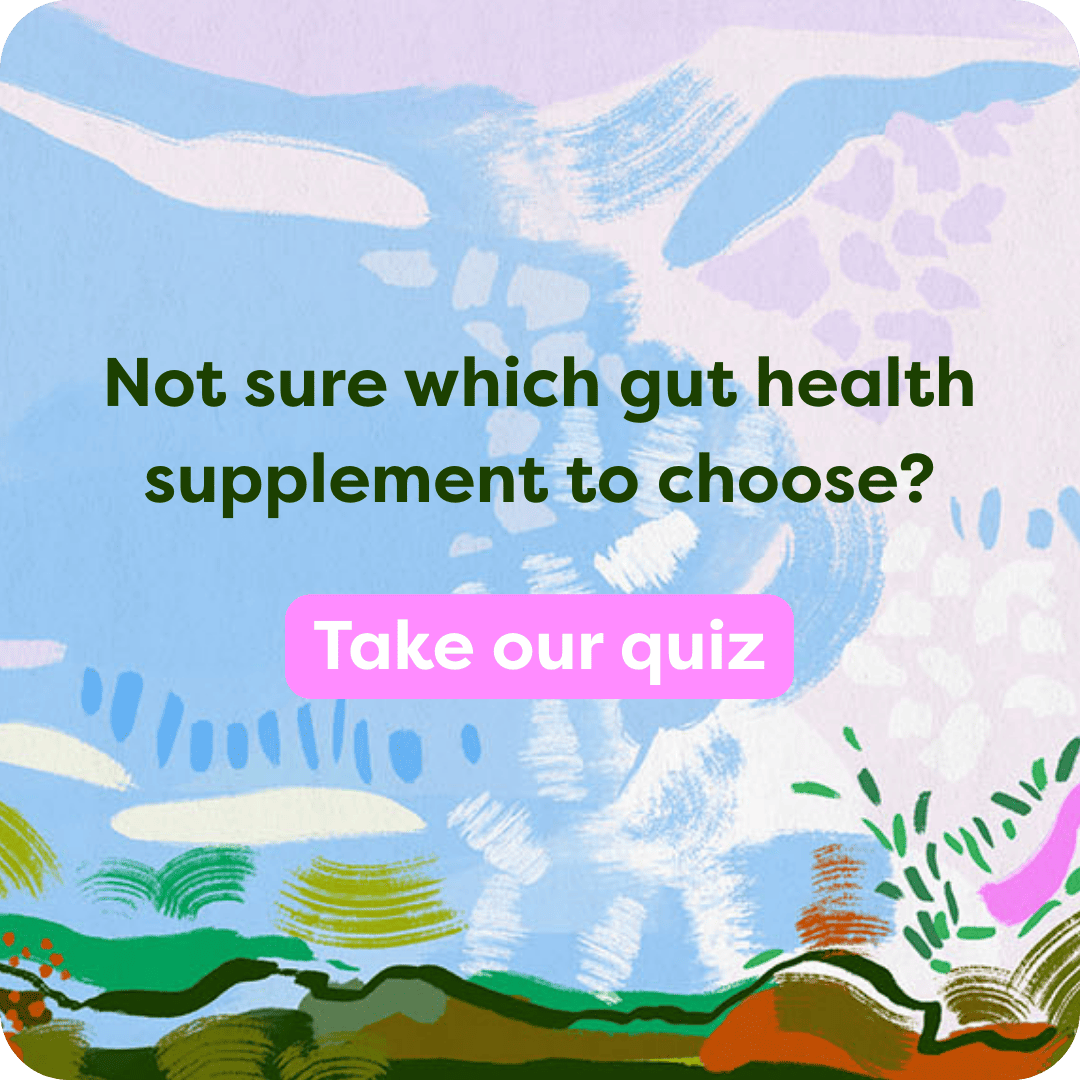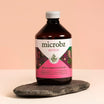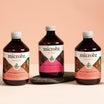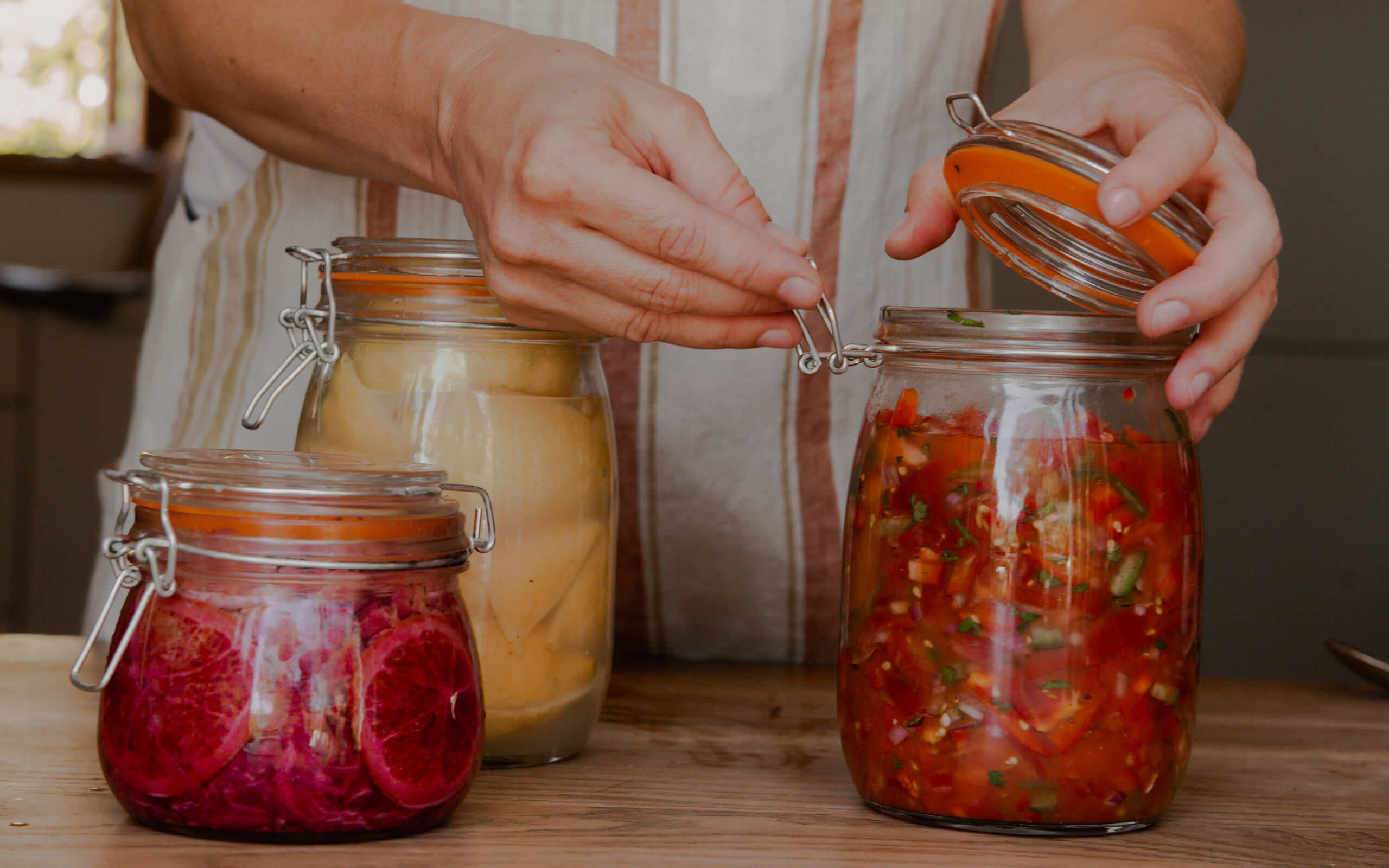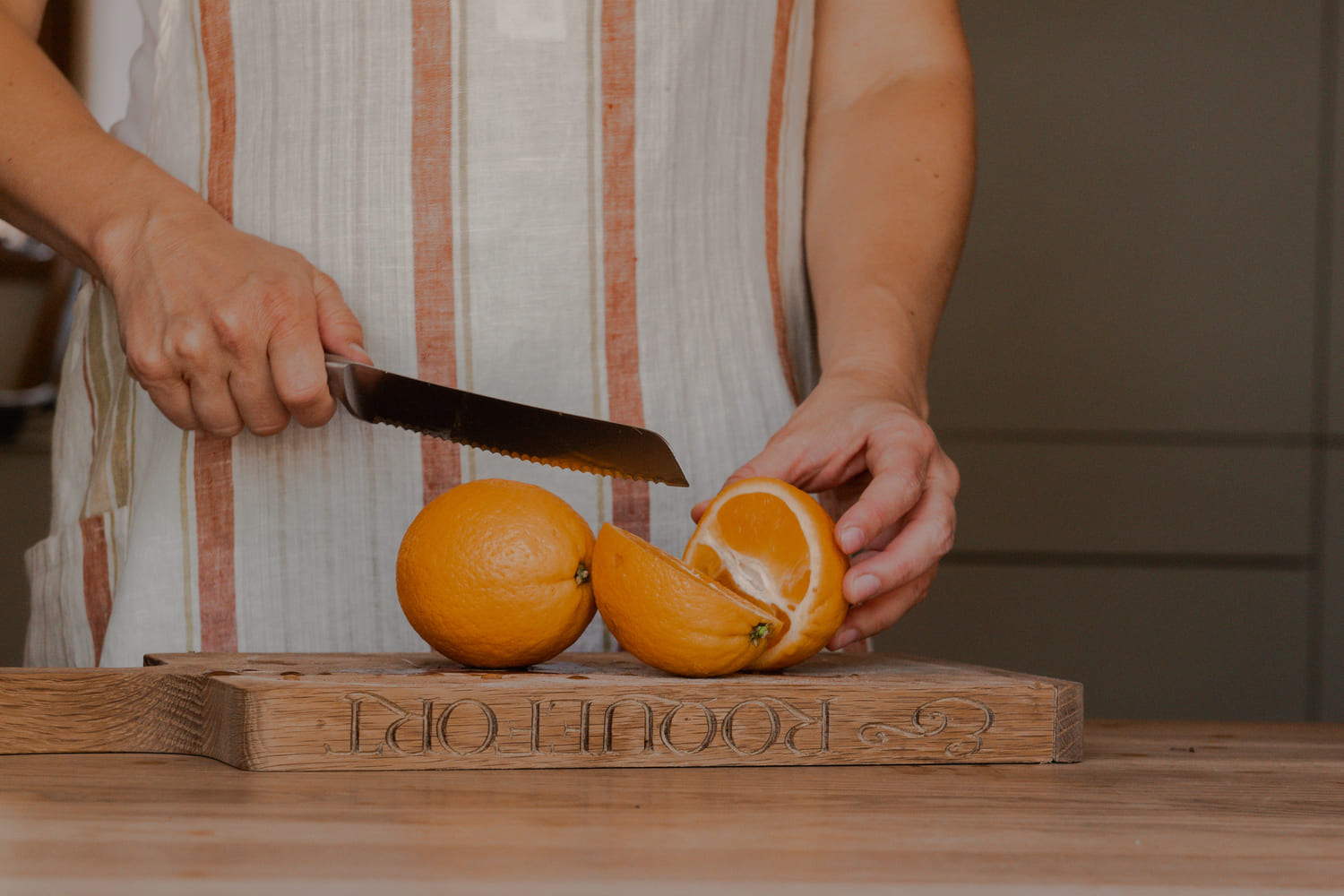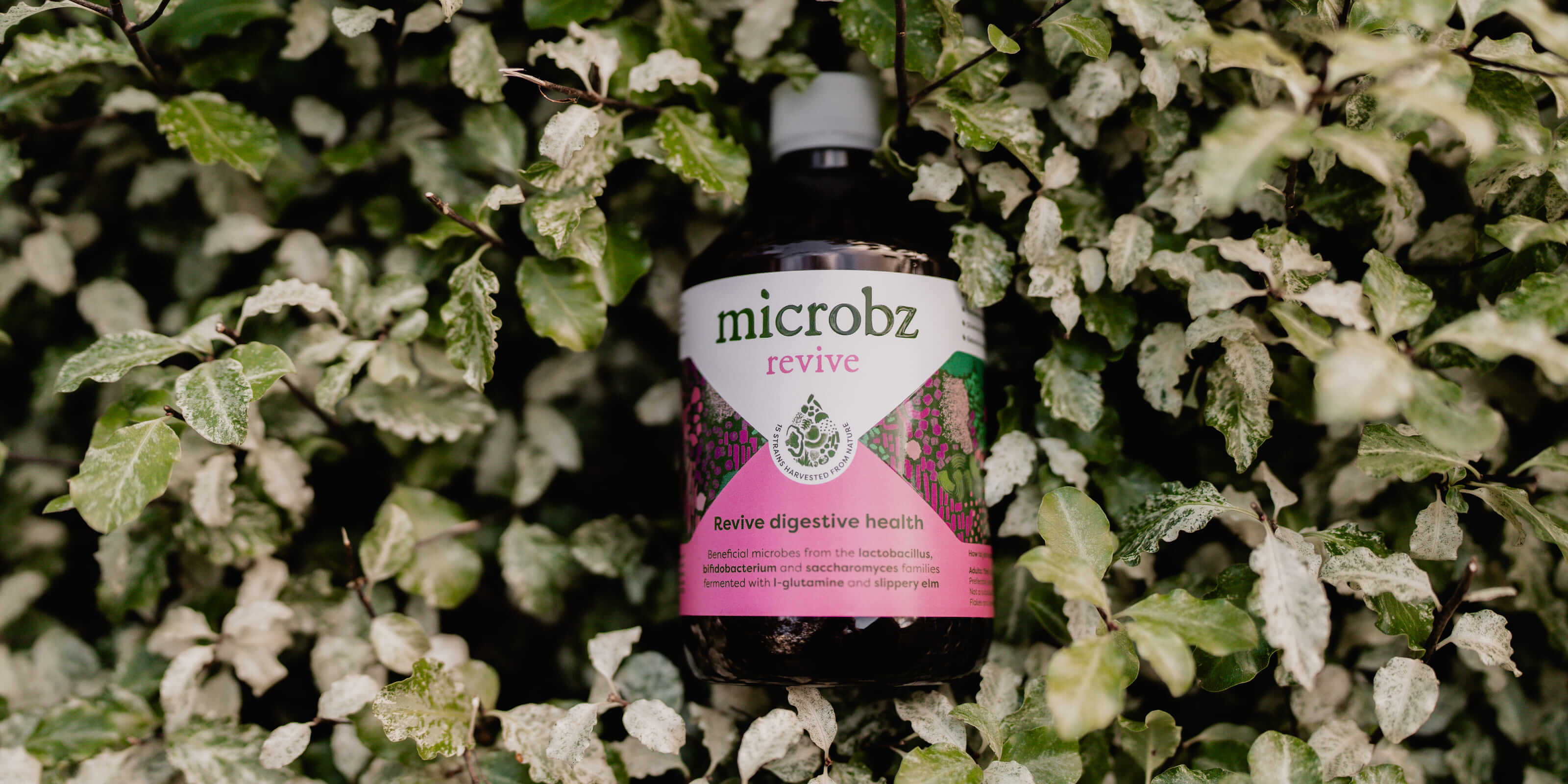How do I improve my gut health with probiotics?
You know you want to improve your gut health and take a probiotic as part of that but you’re not sure where to start.
We’re here to help!
Take a probiotic that is liquid and diverse.
The beneficial microbes - also known as
bacteria - are alive (not freeze dried like in capsules) so can be better absorbed by
your body. Importantly, they are able to work as a community as they’ve done in nature for centuries (single strain extraction for a specific health outcomes is a relatively new concept).
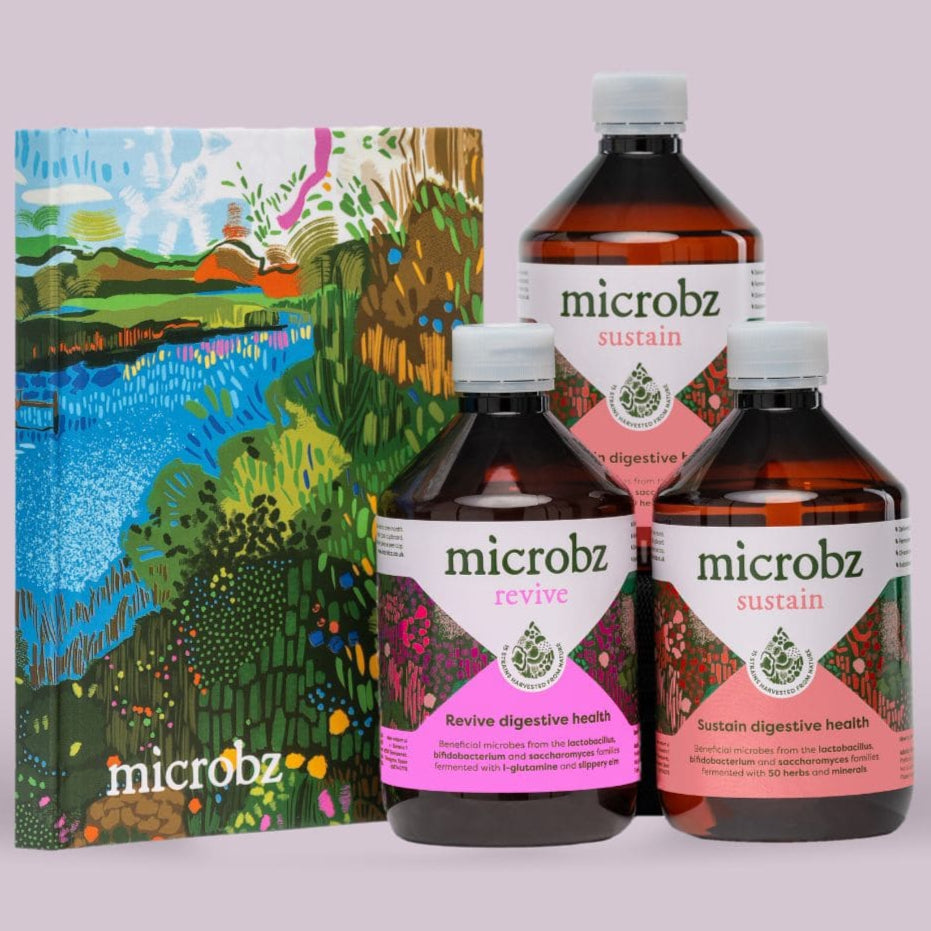
Which probiotic should I start with?
Start with microbz Revive or our 90 Day Gut Reboot including Revive. Revive is designed for people who are either new to probiotics or haven’t taken them for a while. The microbes are fermented with L-Glutamine and Slippery Elm among other herbs and minerals designed to help repair your gut.
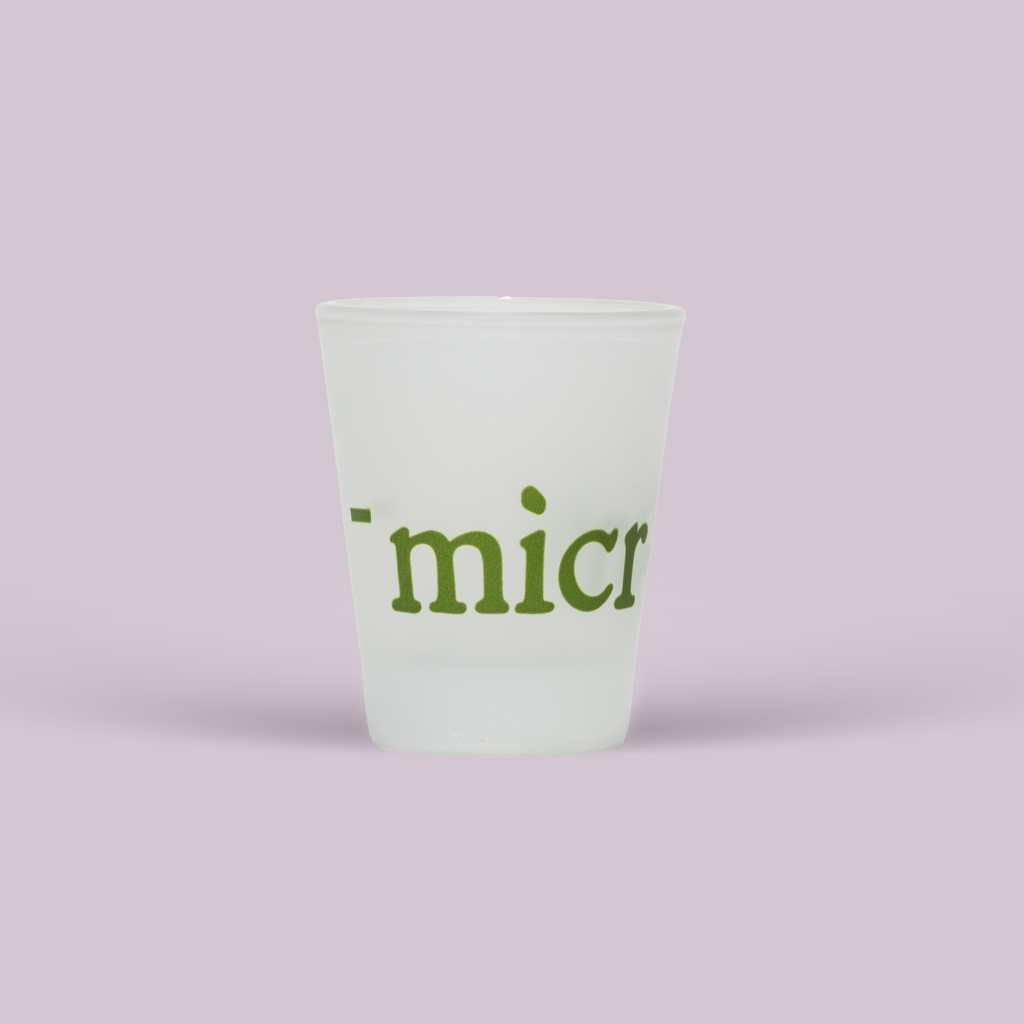
How to take liquid probiotic
Take 15ml in the morning before you eat. You can dilute microbz with water or weak juice and use our shot glass if you want guidance on how much 15ml is. Or a tablespoon will do!
Not sure which probiotic to use?
There are so many choices when it comes to finding the right probiotic for you and it can feel overwhelming.
We recommend one of these two products if you're starting out.
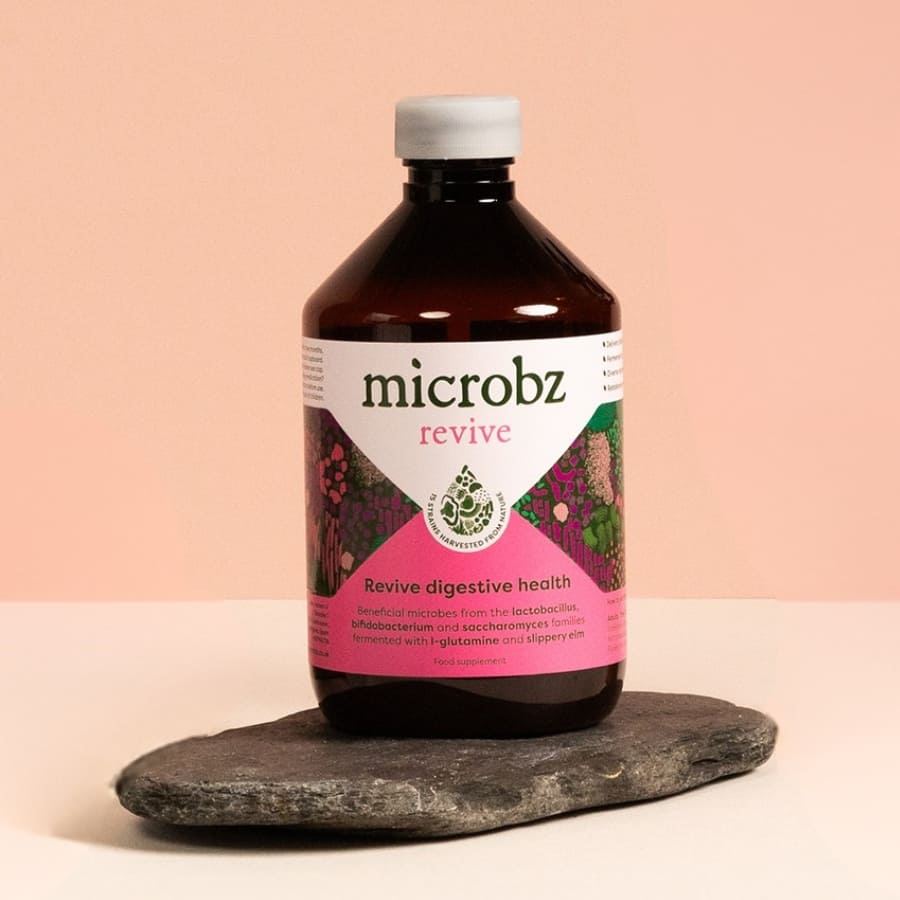
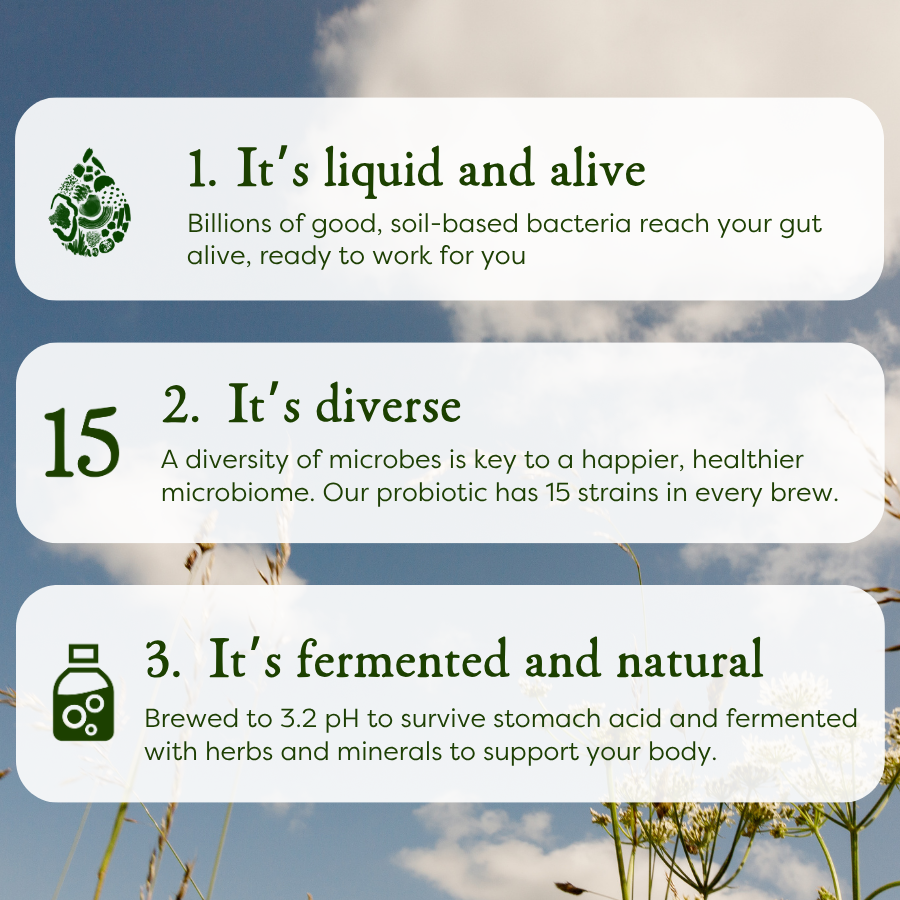
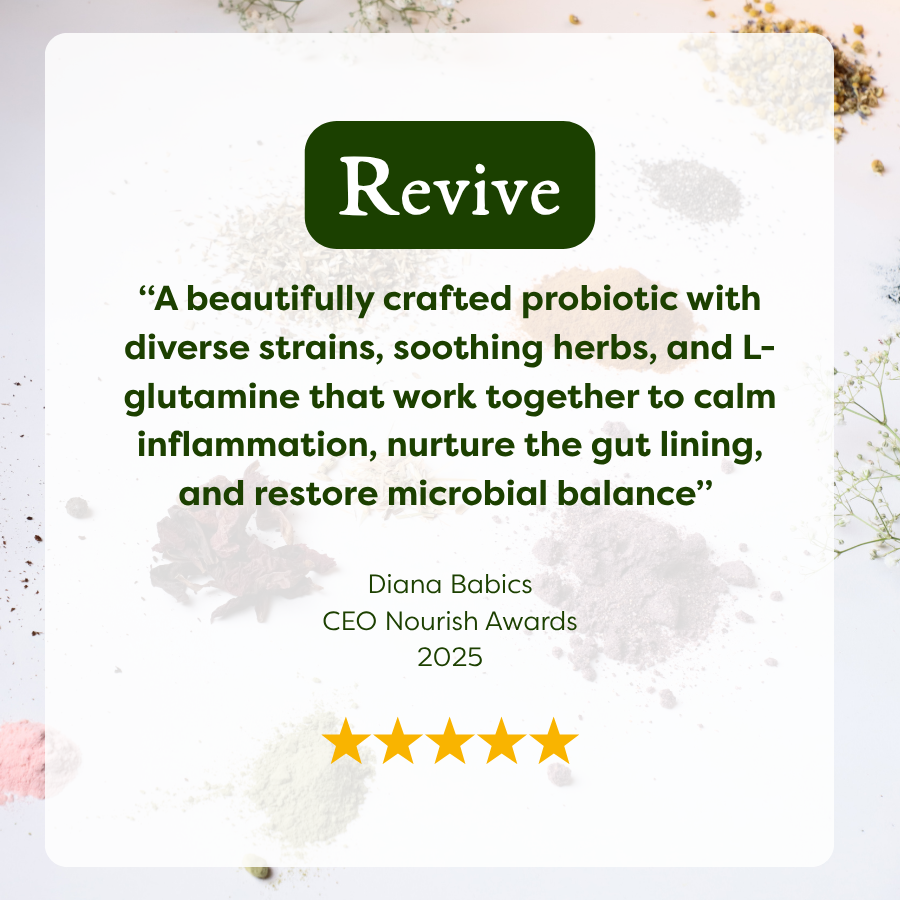
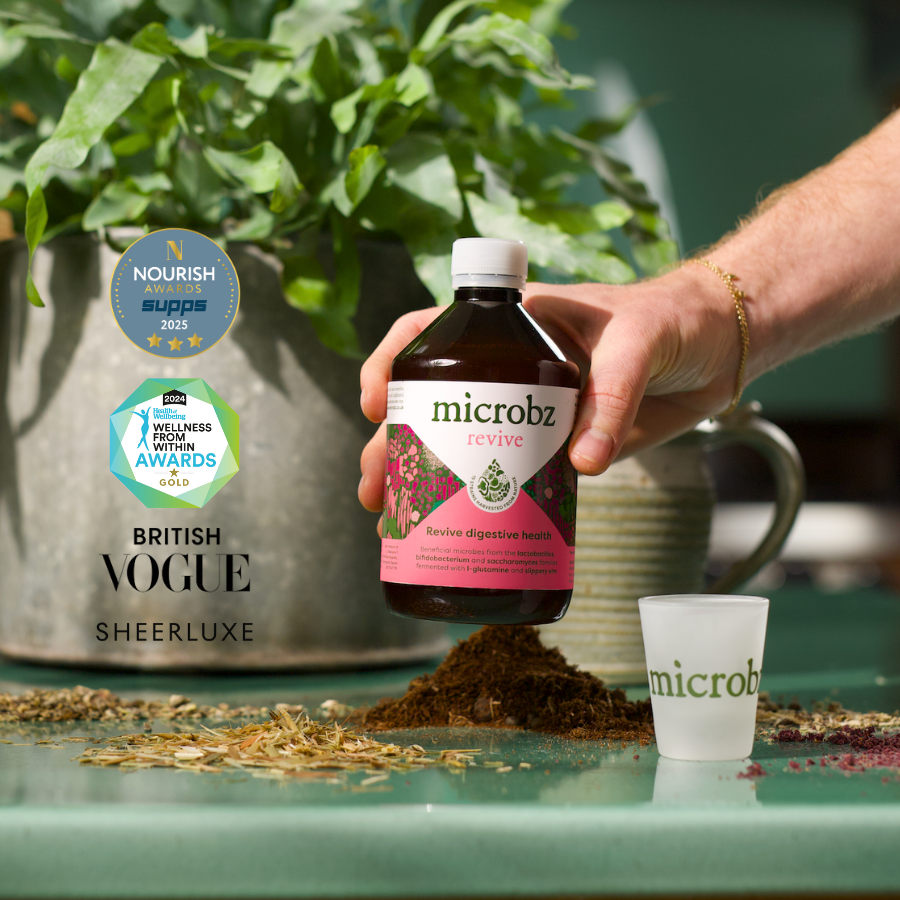

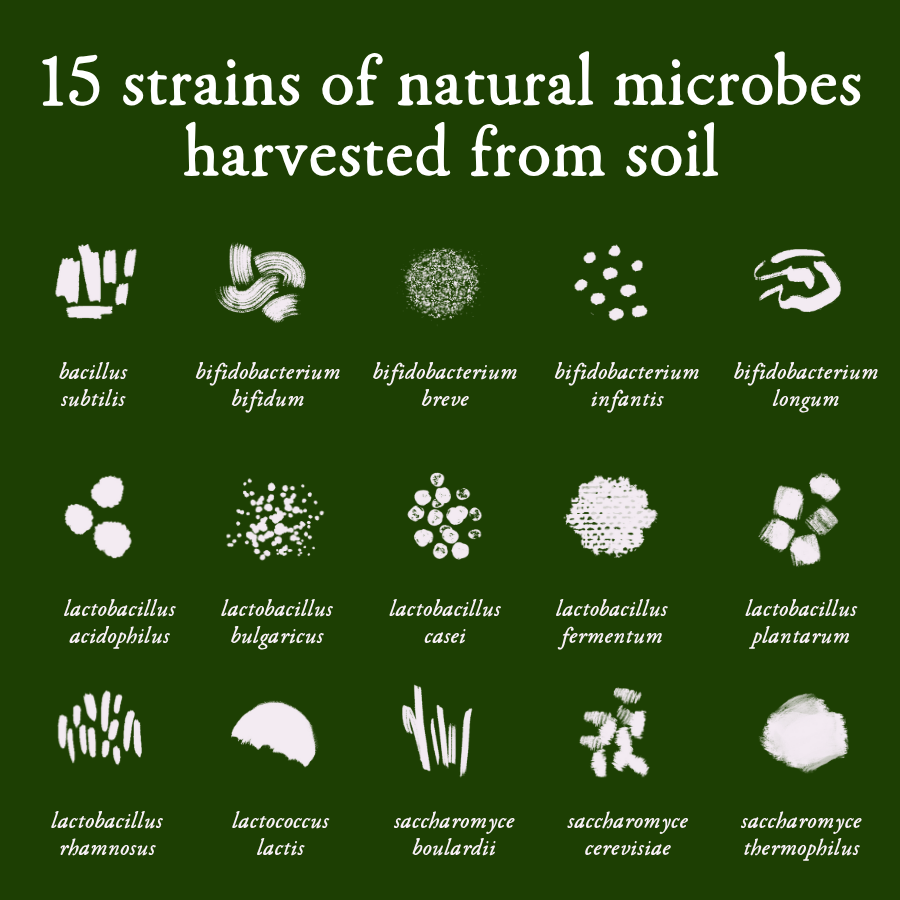
Pickup available at Microbz Warehouse
Usually ready in 24 hours

Revive
4 weeks - 1 bottle
Microbz Warehouse
Unit 5, Broad Lane Farm
Seend
Melksham SN12 6RJ
United Kingdom
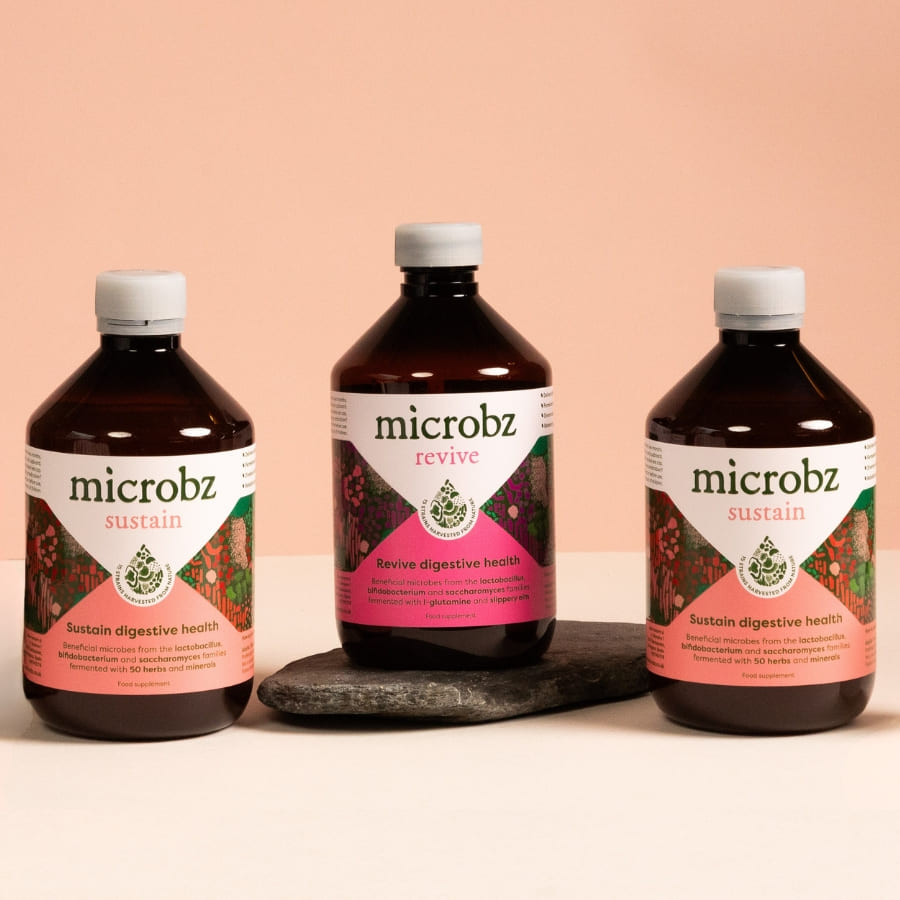

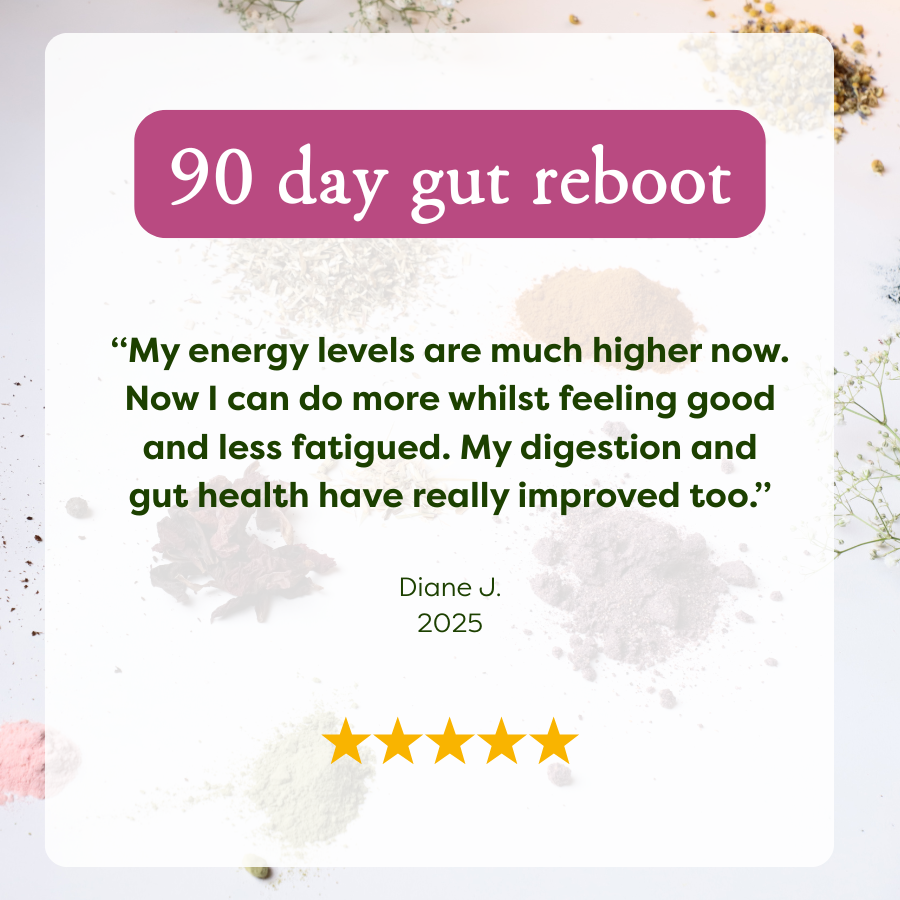
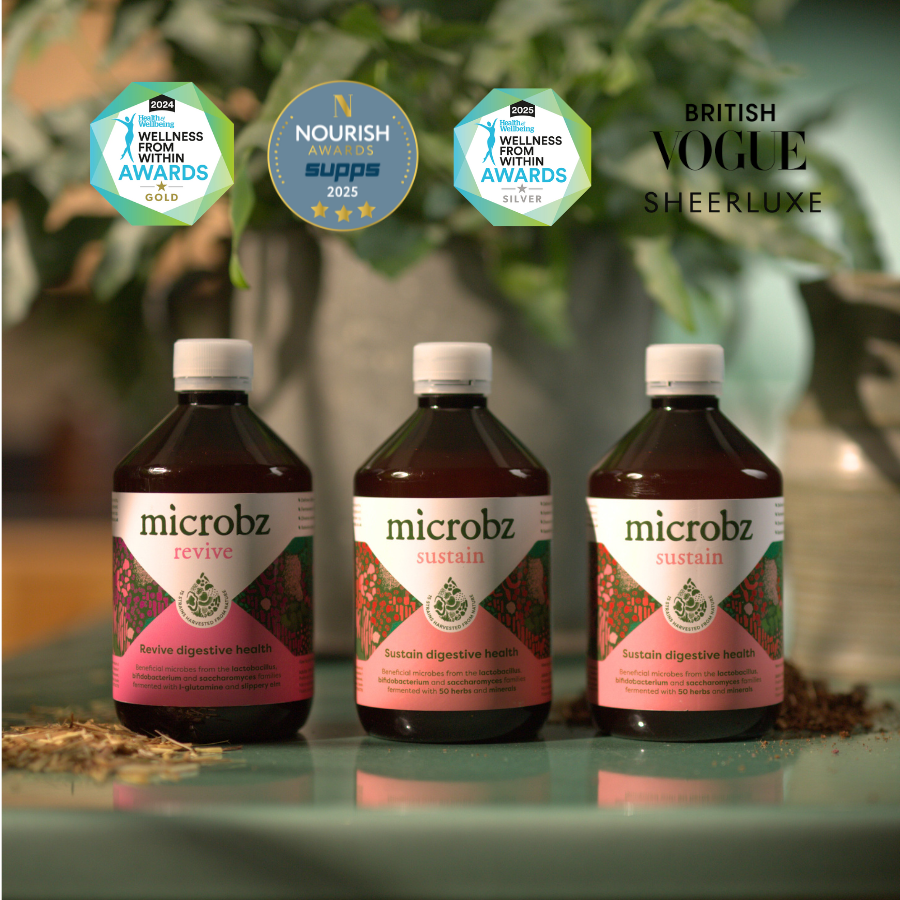


Pickup available at Microbz Warehouse
Usually ready in 24 hours

90 day gut reboot
Microbz Warehouse
Unit 5, Broad Lane Farm
Seend
Melksham SN12 6RJ
United Kingdom

How do you know if you have a gut health issue?
Trust us, you will know.
You’ll probably have one of these symptoms:
- Bloating
- Food sensitivities
- Digestive problems
- Skin issues like eczema or acne
- Joint pain
- Fatigue
- Headaches, brain fog
- Weight gain
- Thyroid issues
- Poor vaginal health
- Other symptoms of hormone imbalance such as PMS, anxiety or menopause or perimenopause symptoms
What affects gut health?
Do you have a constant ache in your gut? Do you find yourself having to hurry away from others in social situations? Have you just completed a course of antibiotics?
Modern life directly contributes to an unhealthy gut through;
Poor nutrition
Inflammatory foods like gluten, refined sugars, refined seed oils and trans fats kill good microbes and allow bad microbes to thrive. They also damage the lining of the intestine and can cause leaky gut, where toxins and particles leak into the bloodstream.
Medications
Antibiotics, the oral contraceptive pill and synthetic prescription drugs can damage the gut. Studies show one course of antibiotics affects the balance of gut bacteria for two years.
Chronic infections
Including candida, parasites or worms. Candida is part of a healthy gut and is kept in check by other bacteria and yeasts. When a large number of bacteria are killed off – by taking antibiotics for example – the candida grows unchecked and toxic waste products affect health.
Stress
In our world, people are often stressed, busy and tired. Stress can reshape the gut bacteria’s composition and weaken the immune system leading to inflammation.

